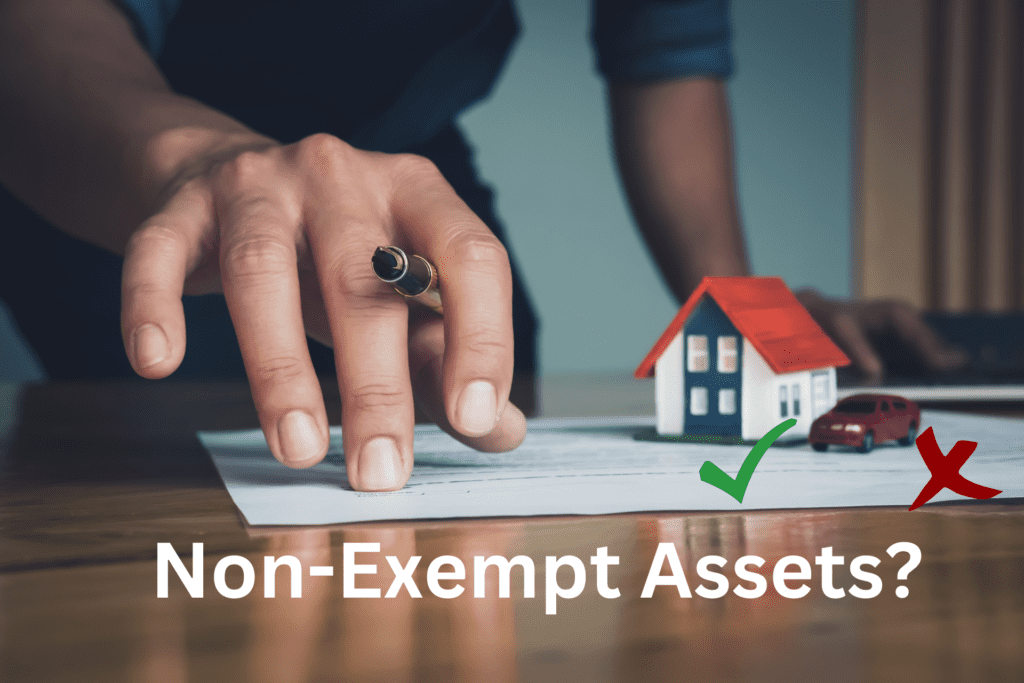
A Chapter 7 bankruptcy is called a “liquidation,” meaning that any assets the debtor has are sold or converted to cash, and are then divided among the creditors. In a Chapter 7, the court appoints a Trustee who has the task of finding, liquidating and distributing any assets.
A debtor is allowed to keep certain assets, which are called EXEMPT assets. Some commonly used exemptions in California are:
- Homestead (for a property in which the debtor lives) – $626,400
- Wildcard or catch-all exemption (if the Debtor does not use the homestead exemption) – $31,950.
These are not all the exemptions.
If all of the debtor’s assets are exempt (which is usually the case with Chapter 7 debtors), then the Trustee will not attempt to administer (meaning to collect, sell, and distribute) the assets.
What if the debtor has non-exempt assets? Such as shares of stock worth more than $31,050? Or a home with more than $626,400 equity?
The Trustee could ask the debtor to turn over the shares of stock to the Trustee, who would in turn sell them and distribute any amount over the debtor’s exemption to the creditor.
Similarly, the Trustee could force a sale of the home. The proceeds would be distributed roughly in this order – First, to the costs of sale, such as real estate commissions and transfer fees. Next, to any creditors having security interests on the home, such as the first and second mortgages, tax liens. Next to pay the Trustee’s fees. Next to pay certain claims that are treated with priority, such as taxes that are less than 3 years old. Next to pay the debtor the $626,400 exemption to which debtor is entitled. The remainder is divided among the general unsecured creditors.
For the Trustee to administer an asset, the value must be more than enough to cover the costs of collecting and selling, and leave enough left over for creditors to make it worthwhile.
It is not unusual for the Trustee to abandon (meaning not do anything with) non-exempt assets where the Trustee deems it would cost more to administer than it would be worth.
Once, when I was representing a party who wanted to purchase an asset of the debtor, the Trustee turned down an offer of $20K in cash, because such a payment would result in less than a 1% dividend to creditors, and the Trustee didn’t want to bother with it.
Any assets that are not administered are deemed abandoned, meaning that they become property of the debtor. Also, if the Trustee takes too long to either abandon or administer the assets, the debtor can file a motion to require the Trustee to abandon the assets. See 1 U.S. Code Sec. 554.
In summary, when a debtor files a Chapter 7, the debtor may have to turn over his/her non-exempt assets to the Trustee – although the Trustee might not want them if the value is not high enough to make a good distribution to creditors. For information regarding the consequences of bankruptcy, or alternatives, call now for a free consultation.
